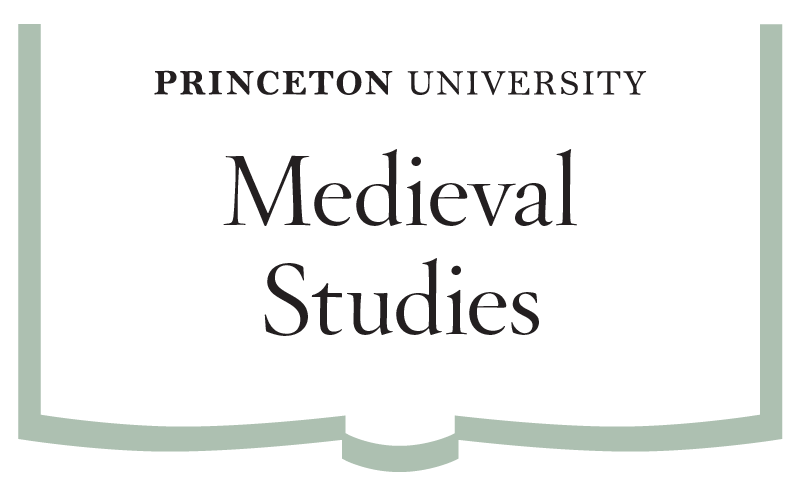A faculty-graduate student working group started by the Comparative Antiquities network, a past Humanities Council Global Initiative. Current working groups are sponsored by the Center for Collaborative History with support from the Program in Medieval Studies. Meetings are convened by Thomas Conlan (East Asian Studies, History), Helmut Reimitz (History), and Marina Rustow (Near Eastern Studies; History). To receive announcements about the workshop and brief precirculated readings, email graduate coordinators Stephanie Luescher (Near Eastern Studies) and Lucia Waldschuetz (History).
What is Comparative Diplomatics?
It is an exploratory workshop on documents in late antiquity and the middle ages with occasional forays into the modern era, as distinct from narrative and normative long-form texts. Its goal is twofold: to stimulate the production of new translations of late antique and medieval documentary sources that can be used in the classroom, and/or harvest some of the translations already being made; and to bring languages, subfields and approaches into contact in order to clarify methodological questions.
We hope to consider documents as objects in time and space — to understand them not just as a dematerialized set of words, but as scribal products, as representatives of a diplomatic tradition, as legal, administrative or financial instruments, as objects of institutional preservation or discard, and as the focus of scholarly examination. In short, we are interested in each document’s lifecycle, from the moment of its production to the present. Each presenter will translate an unpublished document or retranslate a previously published document that needs fresh examination, and roughly one week ahead of time, provide the group with an edition, a translation and an image of the original.
Upcoming Meetings
Please check the MARBAS events page for upcoming meetings for AY 2024-25.
Past Meetings
Spring 2024
March 26, 4:30-6:00PM
Regaldo José (University of Santo Tomás): “The growth of the mestizo sangley in early 17th century Manila as seen in two 1630s documents”
April 11, 4:30-6:00PM
Christina Lee (Spanish and Portuguese): “Accounts on how the “King of Firando” pledged his fealty to the King of Spain”
Fall 2023
September 19, 4:30-6:00PM
Trenton Wilson (East Asian Studies):“Han Dynasty Edicts and Ordinances on Official Promotion”
October 10, 12-1:20PM
Yusuf Umrethwala (Near Eastern Studies): “Scribes of Power: Analyzing the role and influence of scribes in Fatimid Cairo through a draft petition from the Cairo Geniza”
November 14, 4:45 – 6:15PM
Thomas Conlan (East Asian Studies): “How can Jesuits be mistaken for Buddhist monks? Ōuchi Yoshinaga’s 1552 commendation and its Portuguese and Latin Afterlives”
Spring 2023
May 16, 4:30 – 6:00pm
Lucia Waldschuetz (History): “Guarantee, Control, Profit: Surety Contracts of Byzantine Egypt”
Spring 2020
February 6, 4:30-6:00PM
Umberto Bongianino (Oxford University): “The caliph and the monks’ cattle: an Almohad decree in favor of a Catalan monastery (1217 CE)”
February 27, 4:30-6:00PM
Debjani Bhattacharyya (Drexel University): “Inscribing Land Titles: Geographical Imaginations in Legal Texts”
March 3, 6:30-8:00PM
Helmut Reimitz (History): “From Medieval Charters to Roman Law and Back Again. Some Examples from the Late Antique West”
March 24, 4:30-6:00PM
Megan Gilbert (East Asian Studies): “Curated Scrap Paper: Documents on the Reverse Sides of Medieval Japanese Diaries”
April 14, 4:30-6:00PM
Miriam Frenkel (The Hebrew University of Jerusalem): “Rich Bride Poor Bride – Two Trousseau Lists from the Cairo Geniza”
April 30, 4:30-6:00PM
Horikawa Yasufumi (East Asian Studies):“Samurai’s Oath in Medieval Japan: From Princeton University Collection”
Fall 2019
October 2, 4:30-6:00 PM
Marina Rustow (NES, History): “Multi-handed Arabic documents and the Fatimid State”
October 23, 6:00PM – 7:30 PM
Hiroshi Takayama (IAS, The University of Tokyo)
November 6, 6:00 PM – 7:30 PM
Khodadad Rezakhani (Research Scholar, Mossavar-Rahmani Center): “Making a Case: Pahlavi Documents from early Islamic Iran”
December 11, 4:30 – 6:00 PM
Rachel Mairs (University of Reading): “What can(‘t) Greek documents from Egypt tell us about Greek documents from Bactria?”












